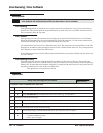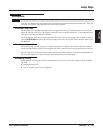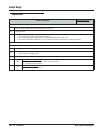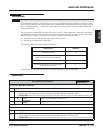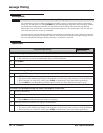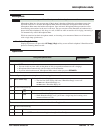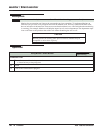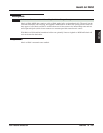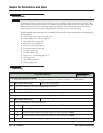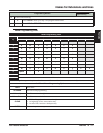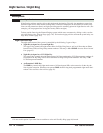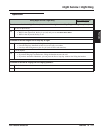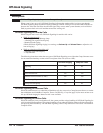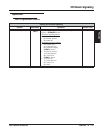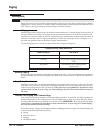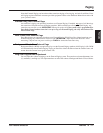
Names for Extensions and Lines
110 ◆ Features DSX Feature Handbook
Names for Extensions and Lines
Description
Extensions and lines can have names instead of just circuit numbers. These names show on a keyset’s dis-
play when the user places or answers calls. Extension and line names make it easier to identify callers. The
user does not have to refer to a directory when processing calls. Extension and line names can consist of
upper and lower case letters, spaces and punctuation, and can be up to 18 characters long.
Extension names display when placing or answering Intercom calls. Line names display when using the fol-
lowing features:
❥ Central Office Calls, Answering (page 32)
❥ Central Office Calls, Placing (page 33)
❥ Direct Inward Line (page 42)
❥ Direct Line Access (page 43)
❥ Directed Call Pickup (page 53)
❥ Last Number Redial (page 96)
❥ Line Keys (page 100)
❥ Loop Keys (page 103)
❥ Night Service / Night Ring (page 112)
❥ Park (page 119)
❥ Speed Dial (page 149)
❥ Transfer (page 161)
Operation
Names help identify lines and extensions.
Programming Names
In these instructions:
[Super Display Soft Key]
[Keyset Soft Key]
To program your extension’s name:
• If you have access level 4 or 5, use “To program a name for a co-worker’s extension . . .” below instead.
1.
[Menu + Name]
[Menu + MORE + MORE + Name]
Select name programming.
2.
Follow the instructions in the Name Programming Chart below.
3.
Press HOLD + SPEAKER to exit.
To program a name for a co-worker’s extension, a Ring Group, or a UCD Group:
1.
[Menu + Name]
[Menu + MORE + MORE + Name]
Select name programming.
2.
When you see EXT:xxx, do one of the following.
a.
Enter the name of the extension you want to program + HOLD.
b.
Press HOLD to accept the displayed name.
c.
Enter the master number for the Ring Group you want to program + HOLD.
d.
Enter the master number for the UCD Group you want to program + HOLD.
3.
Follow the instructions in the Name Programming Chart below.



